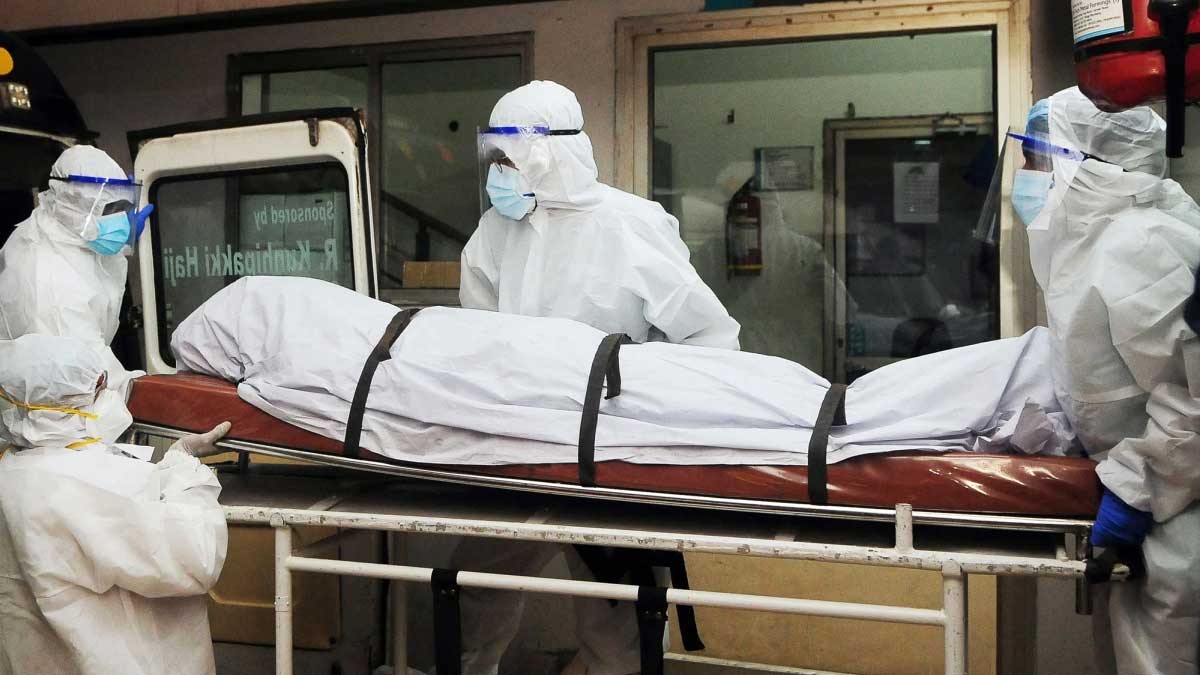- Home
- Billionaires
- Investing Newsletters
- 193CC 1000
- Article Layout 2
- Article Layout 3
- Article Layout 4
- Article Layout 5
- Article Layout 6
- Article Layout 7
- Article Layout 8
- Article Layout 9
- Article Layout 10
- Article Layout 11
- Article Layout 12
- Article Layout 13
- Article Layout 14
- Article Sidebar
- Post Format
- pages
- Archive Layouts
- Post Gallery
- Post Video Background
- Post Review
- Sponsored Post
- Leadership
- Business
- Money
- Small Business
- Innovation
- Shop
Recent Posts
India Faces Nipah Virus Outbreak After Teen Dies

Health officials in India are working swiftly to contain a new outbreak of the Nipah virus after a teenage boy died from the infection over the weekend. The Nipah virus is particularly concerning due to its high mortality rate, which can kill up to three-quarters of those infected. This virus, flagged by experts as having pandemic potential, has been the cause of several outbreaks in the region over the past years, putting public health systems on high alert.
The Nipah virus, first identified in 1999 following outbreaks among pigs and pig farmers in Malaysia and Singapore, is a zoonotic virus that can be transmitted from animals to humans. The virus spreads through direct contact with infected animals or their bodily fluids, and through the consumption of contaminated food, such as fruit products tainted with the urine or saliva of infected bats. Human-to-human transmission has also been documented, especially among family members and caregivers of those infected. These multiple pathways of transmission make the Nipah virus a formidable public health challenge.
Symptoms of Nipah virus infection typically emerge between a few days to two weeks after exposure, although incubation periods as long as 45 days have been reported. Initial symptoms include fever, headache, and respiratory issues, such as coughing, which can rapidly escalate to severe complications like encephalitis (brain swelling) and seizures. These severe symptoms can lead to coma within a day or two of onset. The World Health Organization (WHO) highlights the potential for individuals to be infectious during the incubation period, complicating efforts to control outbreaks. The mortality rate for Nipah virus infection varies from 40% to 75%, depending on the outbreak and the effectiveness of the local healthcare systems. Survivors of severe infection may experience long-term neurological conditions, including seizures and personality changes.
In the southern Indian state of Kerala, health officials are urgently tracking and monitoring over 350 individuals who may have been exposed to the Nipah virus following the death of a 14-year-old boy. Of these, 101 are considered high-risk contacts, and six are already displaying symptoms of the virus. A significant number of these contacts—around 70 people—are healthcare workers who were in contact with the teenager. Kerala, known for its recurring Nipah outbreaks, has been identified as one of the most at-risk regions globally due to the destruction of natural bat habitats and subsequent increased human-bat interactions. This current outbreak is Kerala’s fifth since 2018, underscoring the persistent threat the virus poses in the region.
The Nipah virus gained additional notoriety as it partly inspired the 2011 Hollywood film “Contagion,” directed by Steven Soderbergh. The film, featuring a star-studded cast including Matt Damon, Laurence Fishburne, Jude Law, Gwyneth Paltrow, and Kate Winslet, was praised for its realistic depiction of the scientific and public health response to a fictional viral pandemic, echoing the real-world challenges posed by viruses like Nipah.
Fruit bats, also known as flying foxes, are the natural reservoirs for the Nipah virus. The virus belongs to the Paramyxoviridae family, which also includes the pathogens responsible for measles and mumps. While Nipah virus infection does not seem to cause noticeable illness in fruit bats, it can infect a wide range of hosts, including humans, pigs, sheep, goats, horses, cats, and dogs. This broad host range complicates efforts to track and contain the virus. Nipah outbreaks have been primarily recorded in Bangladesh and India since 2001, but the virus has also caused outbreaks in Malaysia, the Philippines, and Singapore. According to the WHO, there were approximately 600 reported cases of Nipah virus infection between 1998 and 2015.
Currently, there are no approved drugs or vaccines for Nipah virus infection in humans or animals. Treatment is limited to supportive care, addressing symptoms as they arise. Research is ongoing, with some promising developments in the early stages. Monoclonal antibodies are being tested in clinical trials, and the antiviral drug remdesivir, used in humans for other diseases, has shown effectiveness in animal studies when administered after exposure to the virus. Additionally, a vaccine for the Hendra virus, a close relative of Nipah, is available for horses in Australia and appears to offer some protection against Nipah virus infection.
Researchers are actively working on new treatments and vaccines for the Nipah virus. The Coalition for Epidemic Preparedness Innovations (CEPI) recently announced plans to start human trials of a monoclonal antibody to prevent Nipah infection early next year. This antibody is designed to bind to the virus and block it from infecting cells. In January, Oxford University’s Pandemic Sciences Institute launched human trials for what could become the first Nipah vaccine. This experimental vaccine uses the same viral vector technology as the COVID-19 vaccine developed in collaboration with AstraZeneca.
As India confronts another Nipah virus outbreak, the global health community is closely monitoring the situation. This underscores the critical need for continued research, surveillance, and preparedness to mitigate the risk of future pandemics and protect public health.
Recent Posts
Categories
- 193 Countries Consortium Partner1
- 193cc Digital Assets2
- 5G1
- Aerospace & Defense48
- AI37
- Arts3
- Banking & Insurance11
- Big Data3
- Billionaires1,261
- Boats & Planes1
- Business332
- Careers13
- Cars & Bikes79
- CEO Network1
- CFO Network17
- CHRO Network1
- CIO Network1
- Cloud10
- CMO Network18
- Commercial Real Estate7
- Consultant1
- Consumer Tech194
- CxO1
- Cybersecurity73
- Dining1
- Diversity, Equity & Inclusion4
- Education7
- Energy8
- Enterprise Tech29
- Events11
- Fintech1
- Food & Drink2
- Franchises1
- Freelance1
- Future Of Work2
- Games149
- GIG1
- Healthcare79
- Hollywood & Entertainment203
- Houses1
- India’s 1000 Richest1
- Innovation46
- Investing2
- Investing Newsletters4
- Leadership65
- Lifestyle11
- Manufacturing1
- Markets20
- Media327
- Mobile phone1
- Money13
- Personal Finance2
- Policy569
- Real Estate1
- Research6
- Retail1
- Retirement1
- Small Business1
- SportsMoney42
- Style & Beauty1
- Success Income1
- Taxes2
- Travel10
- Uncategorized13
- Vices1
- Watches & Jewelry2
- world's billionaires1,230
- Worlds Richest Self-Made Women2
Related Articles
Musk Endorses Mounjaro, Backs Affordable Weight-Loss Drugs
Elon Musk, the CEO of Tesla, made headlines on Christmas Day with...
By 193cc Agency CouncilDecember 27, 2024What Healthcare Can Learn from Nvidia’s Success
The tech industry is undergoing a seismic transformation, with two of its...
By 193cc Agency CouncilDecember 16, 2024Salmonella Triggers Recalls of Costco Eggs and Cucumbers
The recent salmonella outbreak has prompted the recall of two major food...
By 193cc Agency CouncilNovember 30, 2024Bird Flu Found in Raw Milk in California, Recall Issued
California health authorities have confirmed the presence of the bird flu virus...
By 193cc Agency CouncilNovember 25, 2024















Leave a comment